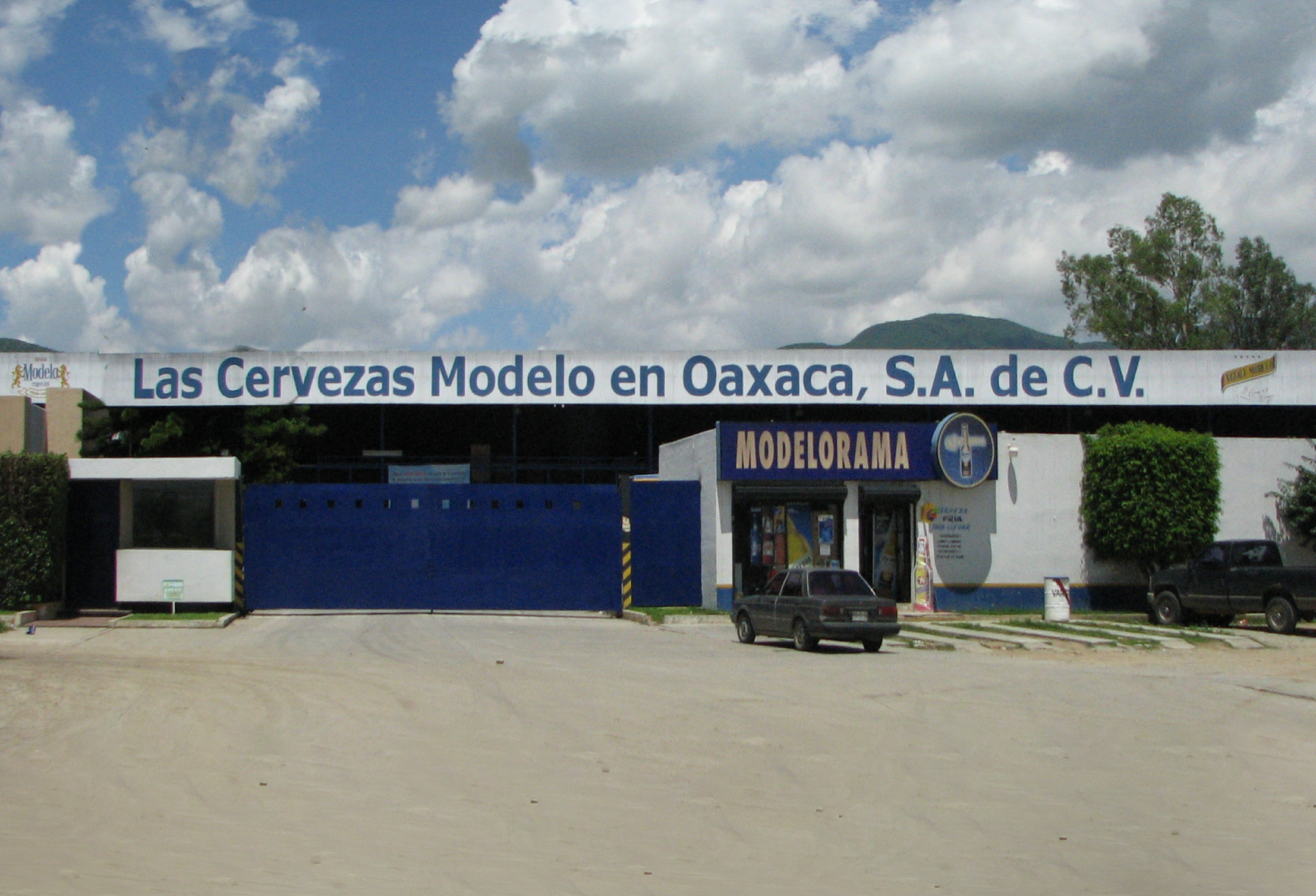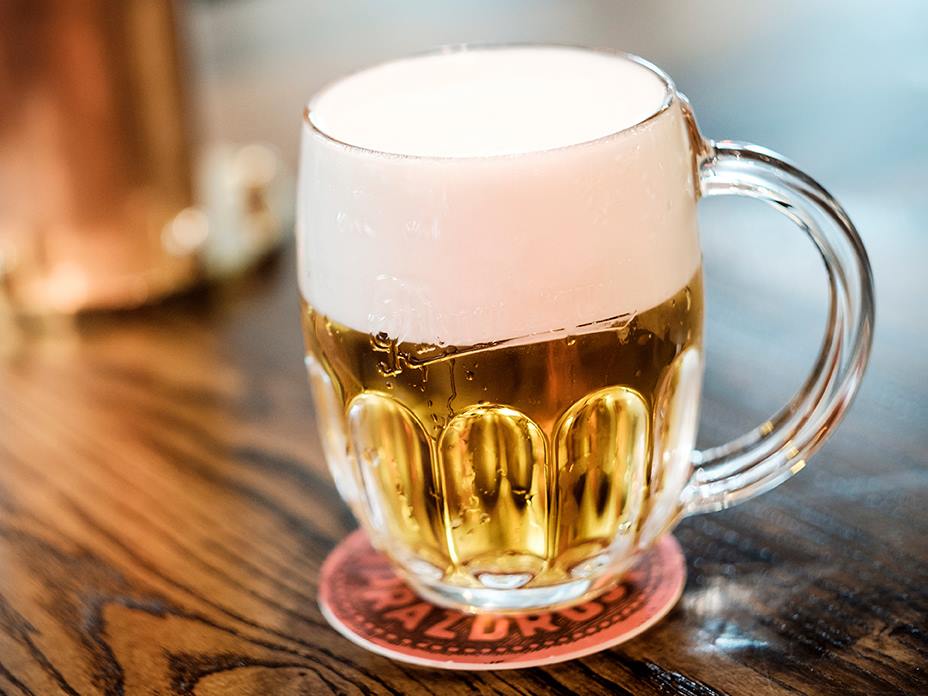|
Pacífico (beer)
Cerveza Pacífico Clara, better known as Pacífico, is a Mexican pilsner-style beer. Cerveza Pacífico is named so because the Pacífico brewery is located in the Pacific Ocean port city of Mazatlán, in the state of Sinaloa, México. History It was first brewed in 1900 when three Germans, Jorge Claussen, Germán Evers and Emilio Radostits opened a brewery, the ''Cerveceria del Pacífico'', in Mazatlán. Its label includes a picture depicting a lifesaver encircling a ship's anchor superimposed over the port's lighthouse hill, known locally as "Cerro del Crestón." In Mazatlán, the beer is available in four different size bottles: "cuartitos" (6 fl. oz), "medias" (12 fl. oz.), "ballenas" (32 fl. oz.) and "Ballenón" (1.2 L). Alcohol content: 4.5 percent. "Clara" means clear, blonde, as opposed to "oscura" (dark). The Pacífico brewery was bought by Mexican brewing giant Grupo Modelo in 1954, which was later acquired by the Belgian-Brazilian Anheuser-Busch InBev company. the ... [...More Info...] [...Related Items...] OR: [Wikipedia] [Google] [Baidu] |
Advertising Campaign For Pacifico Clara
Advertising is the practice and techniques employed to bring attention to a product or service. Advertising aims to put a product or service in the spotlight in hopes of drawing it attention from consumers. It is typically used to promote a specific good or service, but there are wide range of uses, the most common being the commercial advertisement. Commercial advertisements often seek to generate increased consumption of their products or services through "branding", which associates a product name or image with certain qualities in the minds of consumers. On the other hand, ads that intend to elicit an immediate sale are known as direct-response advertising. Non-commercial entities that advertise more than consumer products or services include political parties, interest groups, religious organizations and governmental agencies. Non-profit organizations may use free modes of persuasion, such as a public service announcement. Advertising may also help to reassure employees ... [...More Info...] [...Related Items...] OR: [Wikipedia] [Google] [Baidu] |
Grupo Modelo
Grupo Modelo is a large brewery in Mexico that exports beer to most countries of the world. Its export brands include ''Corona'', ''Modelo'', and '' Pacífico''. Grupo Modelo also brews brands that are intended solely for the domestic Mexican market and has exclusive rights in Mexico for the import and distribution of beer produced by Anheuser-Busch. Until the 1960s, Grupo Modelo used red poppy flowers in most of its advertising. On June 12, 2008, ''The Wall Street Journal'' stated that Anheuser-Busch InBev, which owned a non-controlling 50% stake in the company, might attempt to acquire the remaining 50%. On June 29, 2012, it was announced that Anheuser-Busch InBev would acquire the remaining 50% stake for an all-cash price of $20.1 billion. On January 31, 2013, the US Department of Justice filed an antitrust suit in an attempt to prevent the buyout. The matter was settled and the two companies merged in June 2013, with the transfer of all United States rights to Constellation ... [...More Info...] [...Related Items...] OR: [Wikipedia] [Google] [Baidu] |
Mexico
Mexico (Spanish: México), officially the United Mexican States, is a country in the southern portion of North America. It is bordered to the north by the United States; to the south and west by the Pacific Ocean; to the southeast by Guatemala, Belize, and the Caribbean Sea; and to the east by the Gulf of Mexico. Mexico covers ,Mexico ''''. . making it the world's 13th-largest country by are ... [...More Info...] [...Related Items...] OR: [Wikipedia] [Google] [Baidu] |
Pilsner (beer)
Pilsner (also pilsener or simply pils) is a type of pale lager. It takes its name from the Bohemian city of Plzeň (german: Pilsen), where the world's first pale lager (now known as Pilsner Urquell) was produced in 1842 by Pilsner Urquell Brewery. History Origin The city of Plzeň was granted brewing rights in 1307, but until the mid-1840s, most Bohemian beers were top-fermented. Originally called in german: Bürger-Brauerei Pilsen ( cs, Měšťanský pivovar Plzeň, en, Citizens' Brewery), it is now known as Pilsner Urquell Brewery. It was here they began to brew beer in the Bavarian style. Brewers had begun aging beer made with cool fermenting yeasts in caves (lager, i.e., german: gelagert tored, which improved the beer's clarity and shelf-life. Part of this research benefited from the knowledge already expounded on in a book (printed in German in 1794, in Czech in 1799), written by Czech brewer (german: Franz Andreas Paupie, links=no) (1753–1805) from Brno. The P ... [...More Info...] [...Related Items...] OR: [Wikipedia] [Google] [Baidu] |
Mazatlán
Mazatlán () is a city in the Mexican state of Sinaloa. The city serves as the municipal seat for the surrounding ''municipio'', known as the Mazatlán Municipality. It is located at on the Pacific coast, across from the southernmost tip of the Baja California Peninsula. ''Mazatlán'' is a Nahuatl word meaning "place of deer". The city was founded in 1531 by an army of Spaniards and indigenous people. By the mid-19th century, a large group of immigrants arrived from Germany. Over time, Mazatlán developed into a commercial seaport, importing equipment for the nearby gold and silver mines. It served as the capital of Sinaloa from 1859 to 1873. The German settlers also influenced the local music, banda, with some genres being an alteration of Bavarian folk music. The settlers also established the Pacifico Brewery on March 14, 1900. Mazatlán has a rich culture and art community. In addition to the Angela Peralta Theater, Mazatlán has many galleries and artist's studios. ... [...More Info...] [...Related Items...] OR: [Wikipedia] [Google] [Baidu] |
Sinaloa
Sinaloa (), officially the Estado Libre y Soberano de Sinaloa ( en, Free and Sovereign State of Sinaloa), is one of the 31 states which, along with Mexico City, comprise the Administrative divisions of Mexico, Federal Entities of Mexico. It is divided into Municipalities of Sinaloa, 18 municipalities and its capital city is Culiacán, Culiacán Rosales. It is located in Northwestern Mexico, and is bordered by the states of Sonora to the north, Chihuahua (state), Chihuahua and Durango to the east (separated from them by the Sierra Madre Occidental) and Nayarit to the south. To the west, Sinaloa faces Baja California Sur across the Gulf of California. The state covers an area of , and includes the Islands of Palmito Verde, Palmito de la Virgen, Altamura, Santa María, Saliaca, Macapule and San Ignacio. In addition to the capital city, the state's important cities include Mazatlán and Los Mochis. History Sinaloa belongs to the northern limit of Mesoamerica. From the Fuerte River ... [...More Info...] [...Related Items...] OR: [Wikipedia] [Google] [Baidu] |
German Mexicans
German Mexicans (German: ''Deutschmexikaner'' or ''Deutsch-Mexikanisch'', Spanish: ''germano-mexicano'' or ''alemán-mexicano'') are Mexicans, Mexican citizens of Germans, German descent or origin. Most documented ethnic Germans arrived in Mexico during the mid-to-late 19th century and were spurred by government policies of Porfirio Díaz. Many of them took advantage of the liberal policies in Mexico at the time and went into merchant, industrial, and educational ventures. However, others arrived without any or much capital as employees or farmers. Most settled in Mexico City and the surrounding states of Puebla and Veracruz as well as the northern states of Sinaloa, Jalisco, and Chihuahua. Later settlers headed south towards the Yucatán Peninsula. Significant numbers of German immigrants also arrived during and after both World Wars. The historic strength of German-Mexican relations has contributed to Mexico having the third largest German population in all Latin America behind o ... [...More Info...] [...Related Items...] OR: [Wikipedia] [Google] [Baidu] |
Anheuser-Busch InBev
Anheuser-Busch InBev SA/NV, commonly known as AB InBev, is an American-Belgian multinational drink and brewing company based in Leuven, Belgium. AB InBev has a global functional management office in New York City, and regional headquarters in São Paulo, London, St. Louis, Mexico City, Bremen, Johannesburg and others. It has approximately 630 beer brands in 150 countries. AB InBev was formed through InBev (itself a merger between Interbrew from Belgium and AmBev from Brazil) acquiring Anheuser-Busch from the United States. In October 2015, Anheuser-Busch InBev announced a successful all-cash bid to acquire South African multinational competitor SABMiller; the merger was concluded in October 2016. It was the world's largest brewer even before the acquisition of SABMiller and is considered one of the largest fast-moving consumer goods companies in the world. The annual sales for the company in 2019 were US$52.3 billion; prior to the merger, ABInBev had realized US$45.5 b ... [...More Info...] [...Related Items...] OR: [Wikipedia] [Google] [Baidu] |
Lion (Australasian Company)
Lion is an alcoholic beverage company that operates in Australia and New Zealand, and a subsidiary of Japanese beverage conglomerate Kirin. It produces and markets a range of beer and cider in Australia, and wine in New Zealand and the United States through Distinguished Vineyards & Wine Partners. It acts as distributors for a range of spirits in New Zealand, but does not own any distilleries outright, although holding a 50% share of Four Pillars Gin in Victoria. Lion was formed in October 2009 under the name Lion Nathan National Foods when Kirin Holdings Company Limited purchased brewer Lion Nathan and merged the business with National Foods, which it had owned since 2007. In 2011, the company changed its name to Lion, one company with three businesses: Lion Beer, Spirits, and Wine Australia; Lion, Beer, Spirits and Wine NZ; with National Foods becoming a Melbourne-based subsidiary called Lion Dairy & Drinks. Lion Dairy & Drinks was acquired by Bega in November 2020. the ... [...More Info...] [...Related Items...] OR: [Wikipedia] [Google] [Baidu] |
Mexican Beer
History of beer in Mexico dates from the Spanish conquest of the Aztec Empire. While Mesoamerican cultures knew of fermented alcoholic beverages, including a corn beer, long before the 16th century, European style beer brewed with barley was introduced with the Spanish invasion soon after Hernán Cortés's arrival. Production of this beer here was limited during the colonial period due to the lack of materials and severe restrictions and taxes placed on the product by Spanish authorities. After the Mexican War of Independence, these restrictions disappeared, and the industry was permitted to develop. Furthermore, the arrival of German immigrants and the short-lived empire of Austrian Maximilian I in the 19th century provided the impetus for the opening of many breweries in various parts of the country. By 1918, there were 36 brewing companies, but over the 20th century, the industry consolidated until today, only two corporations, Grupo Modelo (now owned by AB InBev) and Cerv ... [...More Info...] [...Related Items...] OR: [Wikipedia] [Google] [Baidu] |
Beer In Mexico
History of beer in Mexico dates from the Spanish conquest of the Aztec Empire. While Mesoamerican cultures knew of fermented alcoholic beverages, including a corn beer, long before the 16th century, European style beer brewed with barley was introduced with the Spanish invasion soon after Hernán Cortés's arrival. Production of this beer here was limited during the colonial period due to the lack of materials and severe restrictions and taxes placed on the product by Spanish authorities. After the Mexican War of Independence, these restrictions disappeared, and the industry was permitted to develop. Furthermore, the arrival of German immigrants and the short-lived empire of Austrian Maximilian I in the 19th century provided the impetus for the opening of many breweries in various parts of the country. By 1918, there were 36 brewing companies, but over the 20th century, the industry consolidated until today, only two corporations, Grupo Modelo (now owned by AB InBev) and Cerve ... [...More Info...] [...Related Items...] OR: [Wikipedia] [Google] [Baidu] |


_-_MAZATLAN%2C_MEXICO.jpg)

